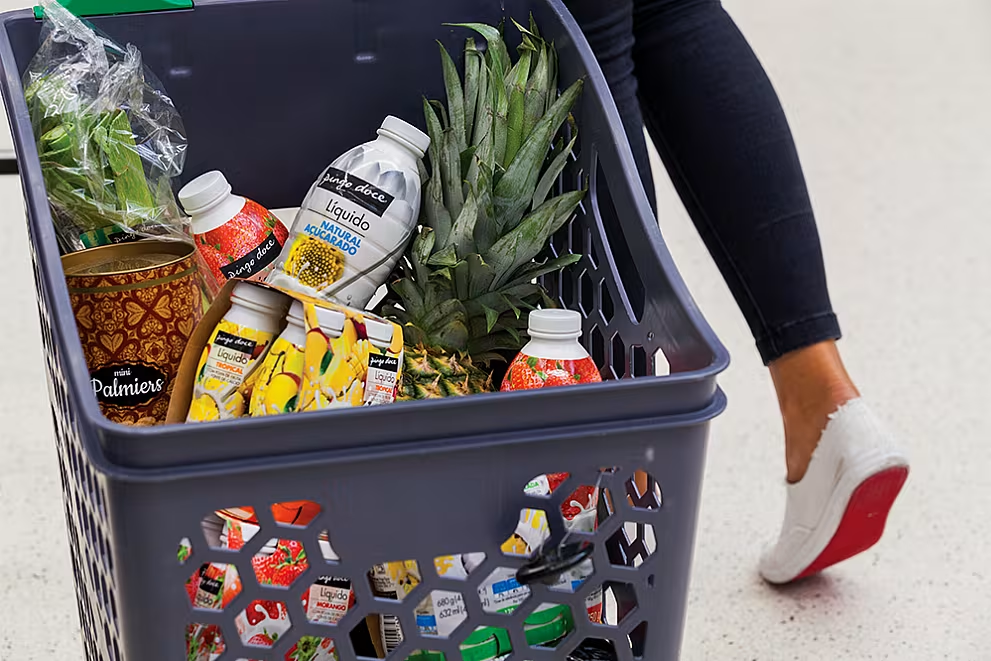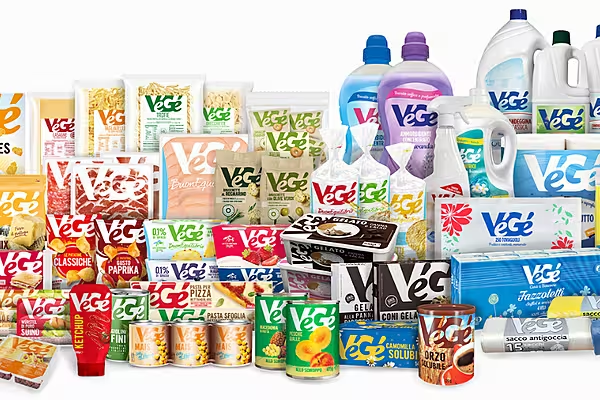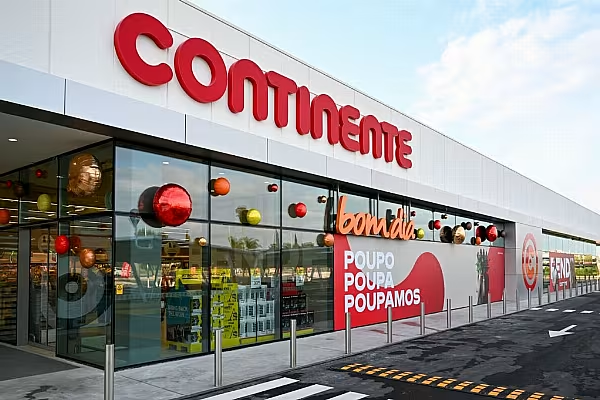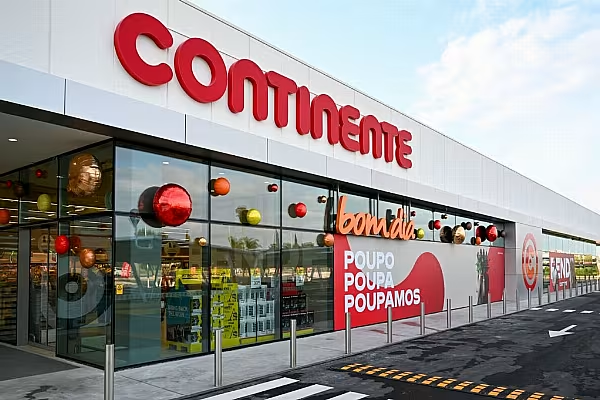ESM turns its attention to the Portuguese market, profiling the increasingly competitive retail landscape as well as the home grown brands seeking to expand overseas. As we discover, there's a lot more to Portugal than custard tarts, sandy beaches and the mournful rhythms of 'fado'. Stephen Wynne-Jones reports. This article first appeared in ESM Issue 1 2018.
Close to four years on from its exit from an IMF/EFSM bailout, Portugal is increasingly looking like a solid investment.
In December, Portugal’s credit ranking was raised two levels (to BBB) by Fitch Ratings, which hailed the country’s “substantial improvement in financing conditions”, boosted by increased tourism and exports.
Socialist prime minister Antonio Costa, a leftist politician in a Europe that is moving steadily right, has steadied the economic ship since he took charge in 2015, and according to the latest OECD projections, Portuguese economic growth is expected to remain above 2% in 2018 and 2019.
‘Consumption growth will remain solid in response to further declines in the unemployment rate and stronger wage growth,’ the OECD wrote last November.
Macroeconomic View
However, as with other markets that suffered most during the economic crash (Portugal was, memorably, the ‘P’ in the ‘PIIGS’ acronym that also included Italy, Ireland, Greece and Spain), consumer confidence remains relatively subdued, despite the macro picture looking brighter.
Portuguese consumers are increasingly looking for greater value and more promotions, but not sacrificing the quality expectations to which they have become accustomed over generations. For the country’s biggest retailers, a difficult balancing act has ensued.
“Consumer confidence has reached its highest level ever in the last two decades, which had a positive effect on the way Portuguese consumers shop,” says Ana Isabel Trigo Morais, director general of APED (Associação Portuguesa de Empresas de Distribuição), the group that represents the retail sector in Portugal.
“We must always bear in mind that this market faces some volatility, but the truth is, the sector is still growing, having created 2,000 jobs in the last two years, with several stores opening. This reflects the trend of a rise in consumption, as seen in 2017, which we believe will continue this year and into the following year.”
Sales Dynamics
According to the most recent retail sales figures for Portugal, published by Nielsen, FMCG sales were up 4.2% over full-year 2017, an indication of growing consumer confidence in the marketplace.
The ‘large supermarket’ category posted the most growth in this period, rising 6.7%, while the highest growth was recorded in the beverages category (8.4%), followed by household hygiene (3.8%), food (3.4%) and personal hygiene (3.1%). In December alone, overall FMCG sales were 9.1% higher, year on year.
Given the high percentage of products on promotion in stores, however, retailers have had to innovate and differentiate their offering, in order to build loyalty.
“We believe that, despite the positive signs brought on by the economic context, the Portuguese still seek out goods with the best quality-price ratio,” says Morais.
“This is the fruit of the economic crisis the country experienced between 2011 and 2015. In this sense, the sector will continue to meet the expectations of the Portuguese and adjust formats in order to find the most suitable value formula. Consumers got used to shopping on promotion and comparing prices, so, in the medium term, we don’t feel consumers will stop using price as their driver when making a purchase.”

Private Label
As the promotional environment has gained prominence, so consumer expectations around private label have also grown. Private-label penetration stood at 33.1% in 2016, according to the APED Sales Barometer, while Nielsen data indicates that own-brand growth was higher than that of mainstream brands last year.
“We believe that the continuous investment by retailers in private labels will continue to represent an increase in the range and a rise in sales in product promotions, with retailer brands becoming an element of differentiation and loyalty,” says Morais.
Online shopping, however, has been largely overlooked thus far by Portuguese shoppers. A study entitled The Future of E-commerce in FMCG, published by Kantar Worldpanel last year, indicated that online grocery penetration in Portugal was a meagre 0.9%, compared to a global average of 4.6%.
Morais believes that the coming years will see online shopping gain prominence, particularly among younger shoppers, as we see more of a blurring of the lines between the online and offline retail environments.
“Everything points towards the leading formats of the future being those that offer a new purchasing experience and/or convenience on all channels,” Morais explains.
“We believe that this year, and in the coming years, we will witness a consolidation of customers using online shopping, as well as mobile payments.”
Sugar Tax
Category wise, the Portuguese retail market has been impacted by legislative measures. This time last year, Portugal’s government introduced a tax on high-sugar beverages, which Portugal’s Ministry of Health estimates has led to a 25% reduction in the purchase and consumption of said beverages.
Further taxes are earmarked for the beer, liqueurs and spirits industries, despite the protestations of leading industry groups. In October, the head of Portugal’s Association of Beer Producers (Associação Portuguesa dos Produtores de Cerveja, APCV), Francisco Girio, labelled the proposed move “inadmissible”.
APED, too, believes that a more productive approach to sugar reduction would have been to establish better information campaigns for consumers, rather than burden households with yet another tax. The sugar tax has led to “a drop in consumption of certain products, and an increase in consumption of other, cheaper ones, which also contain sugar, and which, when consumed excessively, are just as harmful to a healthy diet,” says Morais.
“There are international cases that show that this measure has not had an impact on cutting back on sugar consumption, which leads us to believe [the sugar tax] was created simply to generate additional revenues for the government.
“What’s lacking is a more intense awareness-raising campaign for consumers, examining the healthy consumption of such products.”
Portugal’s wine segment, however (where no tax is applied), is booming, growing by 4% in the retail channel last year, according to Nielsen data, and by 8% in bars and restaurants.
Portugal is set to invest around €13 million in the promotion of its wines in international markets this year, leading to an estimated €800 million worth of exports this year, according to industry representative group ViniPortugal.
But what factors are most influencing Portuguese consumers’ shopping habits?

Purchase Intent
A study published last November by in-Store Media and netsonda, examining consumer shopping habits in Portugal, found that shoppers tend to ‘shop around’, with 73% saying that they shop in more than one supermarket.
When asked ‘In how many branded supermarkets do you shop per week?’, around two thirds of respondents said that they shopped in two chains, with 21% saying that they shopped in three or four. Just 14% said that they shop in one supermarket banner per week.
Unsurprisingly, shoppers cite price as the number-one influencing factor on where they choose to shop, with 66% citing it as such. Range, cited by half of respondents (49%) is another core driver of purchase intent, as is the shopping experience (55%).
Particularly with regard to the shopping experience, the study found that Portuguese consumers chiefly demand being able to find what they need quickly and easily (cited by 63%), to complete purchases rapidly, preferably without having to queue (66%), and to purchase all their goods in one place (60%).
Easy to find promotions (62%) and helpful employees (59%) also rank highly in terms of determining where Portuguese consumers choose to part with their cash.
Social Responsibility
As well as seeking out quality at the right price, the study also found that consumers expect retailers to meet high expectations when it comes to social responsibility.
More than half (51%) of respondents said that they want supermarket chains to treat their employees fairly, while 49% said that they expect stores to be attentive to environmental issues, or make efforts to help their local community (48%).
For those respondents that have shopped online (9%), key considerations for consumers include ensuring the products are received in good condition (84%), being able to avail of the same promotions online as in-store (77%), timely delivery (73%), and ensuring products have an extended expiration date (66%).
The study questioned 500 families across Portugal (including the mainland, Madeira and the Azores), and survey respondents were comprised of 47% men and 53% women, all aged between 25 and 55.
Retail Champions
The Portuguese grocery retail market is home to both key local players — including Jeronimo Martins, whose Pingo Doce banner is the market leader in the supermarket channel, and Sonae MC, whose Continente leads the hypermarket channel — and international retail players, including French giants Auchan and Intermarché, discounters Aldi and Lidl, and Spain’s DIA and Coviran.
In January, Jerónimo Martins announced a like-for-like sales increase of 1.0% at its Portuguese retail operation, Pingo Doce, for full-year 2017, including a 3.0% like-for-like sales increase in the fourth quarter.
The group opened a net nine new stores under the banner over the course of 2017, which reported total sales of €3.67 billion, a 3.1% increase on the previous year. In addition, the group’s Recheio wholesale business posted 6.2% like-for-like growth for the year, including a 6.6% increase in Q4.
Sonae, meanwhile, is steadily building its operation on two fronts. As well as the Continente hypermarket chain, the group’s Meu Super (the fastest-growing franchise operation in Portugal) and ‘Bom Dia’ convenience-store banners are also coming up with the goods.
According to Sonae’s 2017 results, the retailer posted 1.2% like-for-like growth last year, posting sales of €3.8 billion. Notably, online retail sales were above €100 million for the first time.
Elsewhere, at the start of the year, Auchan Portugal announced plans to invest €90 million in both store refurbishments and new openings in the next few years, including increased investment in both its Jumbo hypermarkets and new MyAuchan neighbourhood stores.
Intermarché has announced its intentions to open a net 63 new stores between 2015 and 2020, investing €200 million in the process — a move that will leave it with close to 300 outlets by the end of the decade.
A New Arrival
Next year, however, sees the arrival of a new player that has the potential to really shake up the Portuguese retail sector — Spanish retail market leader Mercadona, which is investing €25 million in the opening of four stores in the greater Porto region in 2019: in Gondomar, Gaia, Canidelo and Matosinhos (very close to one of Auchan Portugal’s newly-refurbished Jumbo hypermarkets).
Having embarked on a rapid expansion drive in Spain over the past few years — the retailer has opened as many as 60 outlets a year, in spite of the country’s chastened economic environment — Portugal’s major players will be keeping a close eye on Mercadona’s next move.
APED’s Morais believes, however, that the retail sector is ready for the arrival of such an illustrious rival. The group already has Mercadona on its associate list.
“The entry of new players in any segment represented by the association — retailers, wholesalers or e-commerce — is always considered an added value for the sector,” she says.
“It not only leverages the sector’s economic projection, but it also drives the market further, whether through new know-how, new formats or new ways of responding to consumer trends and demands.”
If Portugal’s economy continues to show the same positive signs of recovery over the coming months, the Spanish retail giant could have timed its move perfectly.
© 2018 European Supermarket Magazine – your source for the latest retail news. Article by Stephen Wynne-Jones. Click subscribe to sign up to ESM: The European Supermarket Magazine.














